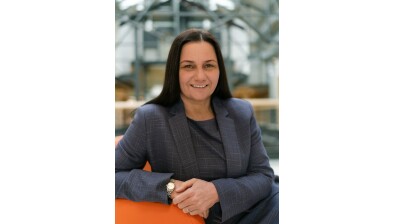Henderson Loggie: Lawyers face issues examining witnesses in virtual courtrooms

CaptionPeter Graham and Christine Rolland
Peter Graham, director of Henderson Loggie’s forensic accounting practice in Scotland, who is regularly appointed as expert determiner by the President of ICAS, has revealed that lawyers in Scotland have experienced issues when examining or cross examining witnesses in virtual courtrooms.
Henderson Loggie’s latest ‘Views on the Scottish legal landscape’ survey has captured the dissatisfaction among lawyers with virtual court hearings introduced during the pandemic, with 45% voting that representing clients virtually is worse than in traditional courtrooms.
Yet, in 2020, two out of three respondents to a previous survey by the accountancy firm, one of very few in Scotland with a specialist forensic accounting division, thought that the courts should allow clients to be represented remotely in civil courts to reduce the backlog, suggesting that full proofs should be run online.
Since then, almost all respondents (95%) have had experience of cases being heard in virtual courtrooms. Half described the experience as no more or less efficient than traditional courtrooms but 45% voted that representing clients virtually is worse. 60% of those asked rated virtual procedural hearings to be better than traditional procedural hearings and almost half (47%) gave the thumbs down to online platforms.
The highest levels of dissatisfaction with virtual courtrooms were in relation to examining and cross-examining both witnesses of fact, where 83% with experience consider it worse than in a traditional courtroom, and expert witnesses, where 70% of those with experience considered it worse. 85% with experience in running virtual proofs rated them worse than traditional proofs.
Peter Graham said: “Although virtual courtrooms have kept the wheels of justice turning throughout the pandemic and have some advantages of convenience over traditional courtrooms, lawyers have experienced issues when examining or cross examining witnesses.
“In a traditional courtroom setting, non-verbal communication plays a significant role in this process, and nuances are lost through a video link. As a forensic accountant and expert witness, I have also found the virtual experience to be less satisfactory when facing a full court online. A level of control is lost when it’s not possible to see the Judge type or write notes, or to physically turn to address him or her to respond to questions. It means that the chance of interruption and opportunity to distract is much higher.”
The report also points to a rise in the number of disputes not progressing because of COVID-19 with a quarter of those surveyed experiencing an increase.
Despite the introduction of litigation financing rules in April 2020, the financial and non-financial costs of pursuing matters have been stumbling blocks for those reluctant to stretch resources even further in already challenging times.
Christine Roland, Henderson Loggie forensic accounting director, added: “I am not surprised to learn that over 40% of respondents to our survey have seen an increase in the number of disputes not progressing due to COVID-19. With everyone feeling the pinch at present, it follows that the cost of pursuing cases was listed as the most common reason for not going ahead. In my experience, it can be the fear of the unknown in terms of costs that can be off-putting for clients who have no wish for a pyrrhic victory.’
“It is interesting that a lack of funding options was the second most common reason for cases not progressing. Since litigation funding has only been allowed in Scotland since the spring of 2020, it is very much still in its infancy. Perhaps it will just take time for litigation funding to become the norm, or, at least, a viable option in Scotland as it is in other jurisdictions.”
The survey discovered that an expected uptake in the use of alternative dispute resolution (ADR) has not happened. Back in 2020, 84% of lawyers asked said they expected ADR methods would be used in mediations, 52% said in arbitrations and 29% said in expert determinations.
This year’s research reveals that respondents haven’t seen anywhere near the predicted levels of ADR being used. Just over half of respondents have seen ADR being used in mediations, only 7% in arbitrations and 10% in expert determinations.
Hybrid working in the sector seems to be here to stay. Only 13% of lawyers surveyed have returned to working full time in the office, with the same number remaining full time at home.
One in five spend three to four days in the office and more than half (55%) spend one or two days in the office a week, appreciating the benefits of saving time and costs associated with the daily commute more than the environmental impact. Lower stress and a better work-life balance were ranked second in the list of benefits from respondents who enjoy the flexibility of working from home.
Increased productivity came third, reducing the risk of potential covid infection was fourth. Respondents focused on the social aspects among the top benefits of working from the office, with better Wi-Fi and increased productivity low down on the list.







